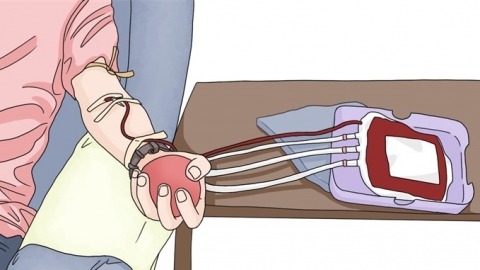Can I donate blood with a blood pressure of 148-96 mmHg?
Blood pressure of 148/96 mmHg is not eligible for blood donation, as the blood pressure has not been controlled within the normal range, and donating blood may pose health risks. The detailed explanation is as follows:

Normal blood donation requires systolic blood pressure ≤140 mmHg and diastolic blood pressure ≤90 mmHg. A reading of 148/96 mmHg exceeds the normal range and falls into the category of hypertension. At this level, donating blood may cause a reduction in blood volume, leading to blood pressure fluctuations and increasing the likelihood of experiencing symptoms such as dizziness and chest tightness. In severe cases, it may even trigger cardiovascular or cerebrovascular accidents, which are detrimental to the donor's health.
Additionally, elevated blood pressure might indicate underlying vascular conditions or other health issues. Donating blood without identifying the cause or effectively controlling the blood pressure could not only compromise the quality of donated blood but also potentially mask the underlying condition, affecting subsequent health evaluations. Blood banks prohibit individuals whose blood pressure does not meet the criteria from donating blood to ensure the safety of both donors and recipients.
Individuals with a blood pressure of 148/96 mmHg should first work to control their blood pressure through lifestyle modifications or medical treatment as directed by a physician. Once blood pressure has stabilized below 140/90 mmHg, they should truthfully inform blood bank staff of their blood pressure levels and control history, allowing professionals to assess whether they are suitable for blood donation. Do not attempt to donate blood before achieving the required blood pressure standards.




